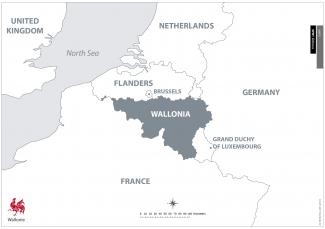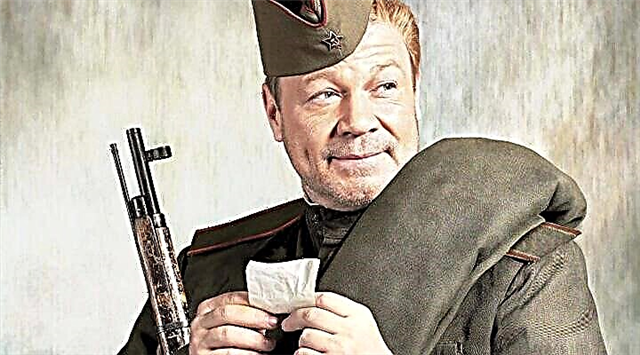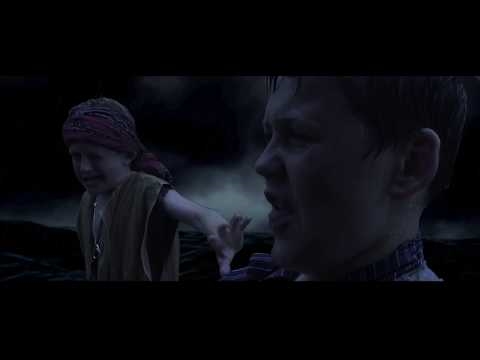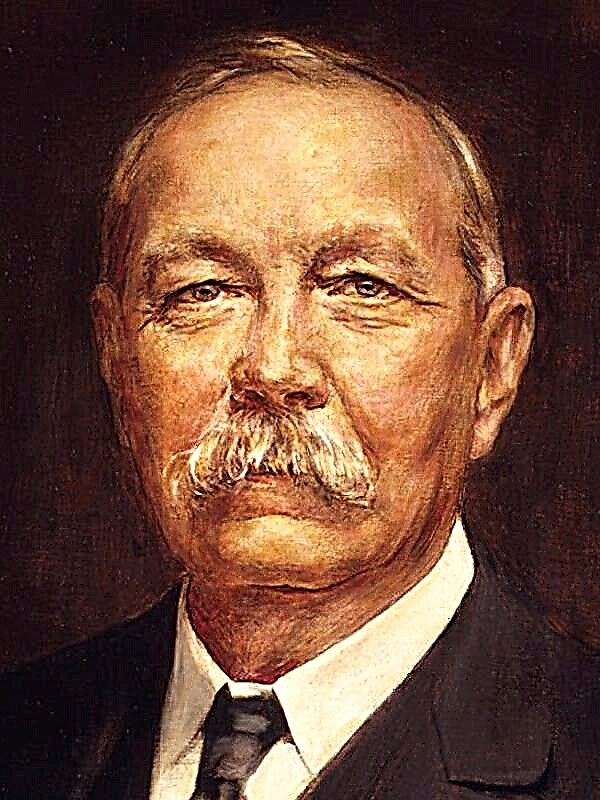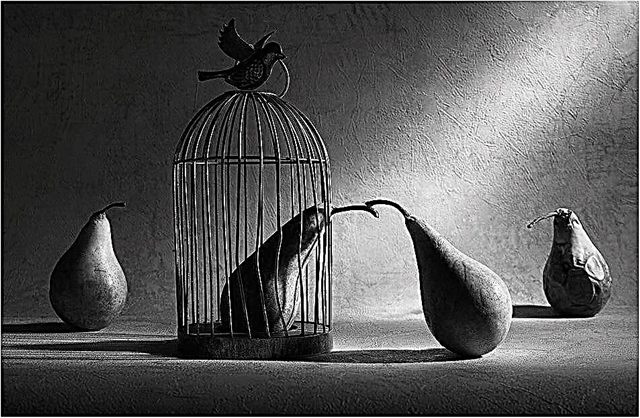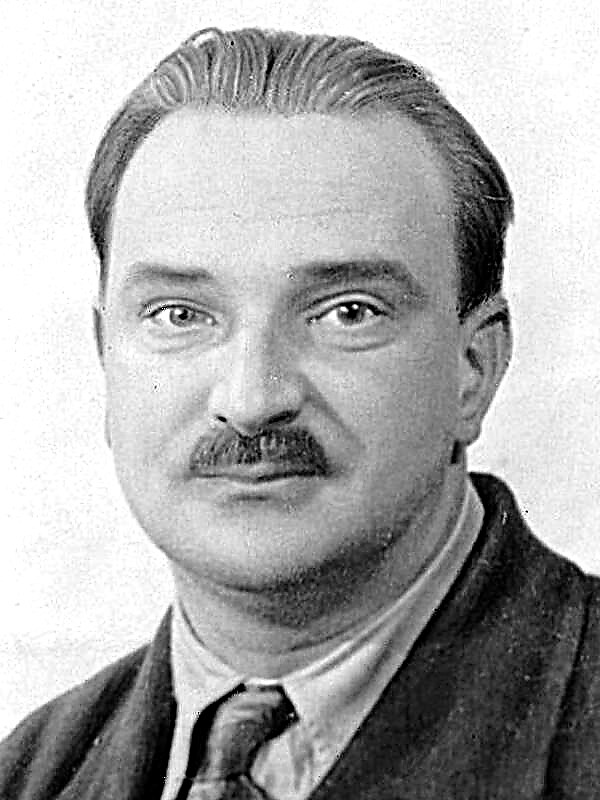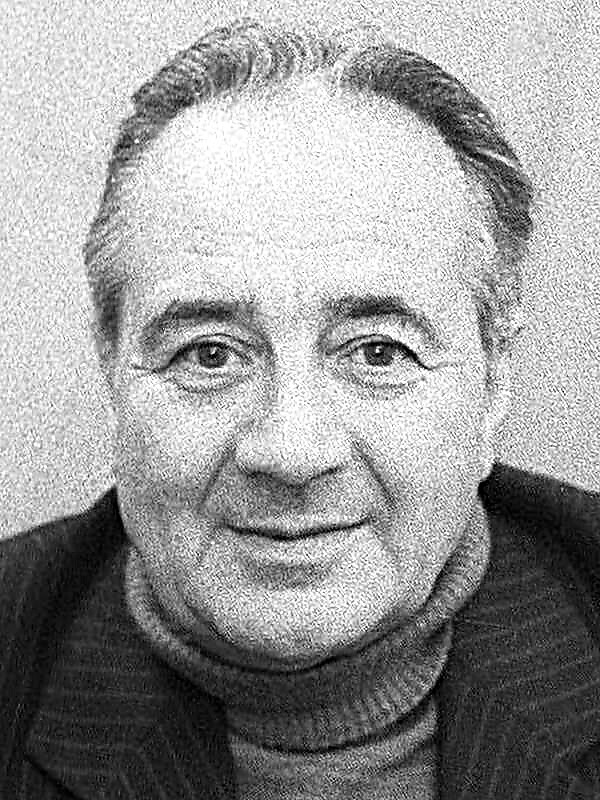Part one
Introduction
I met Alexander Petrovich Goryanchikov in a small Siberian town. Born in Russia as a nobleman, he became a second-rate exiled convict for killing his wife. After serving 10 years of hard labor, he lived out his life in the town of K. He was a pale and thin man of about thirty-five, small and puny, unsociable and suspicious. Driving past his windows one night, I noticed a light in them and decided that he was writing something.
Having returned to the town about three months later, I found out that Alexander Petrovich had died. His mistress gave me his papers. Among them was a notebook describing the penal servitude of the deceased. These notes — “Scenes from the Dead House,” as he called them — seemed curious to me. I select several chapters for testing.
I. The Dead House
The jail stood by the ramparts. The large yard was surrounded by a fence of high pointed poles. The fence had strong gates guarded by sentries. Here was a special world, with its laws, clothes, mores and customs.
On the sides of the wide courtyard stretched two long one-story barracks for prisoners. At the back of the yard there is a kitchen, cellars, barns, sheds. In the middle of the courtyard there is a flat platform for verifications and roll calls. Between the buildings and the fence there was a large space where some prisoners liked to be alone.
At night we were locked in a barracks, a long and stuffy room, lit by greasy candles. They locked it up early in winter, and in the barracks for four hours there was a din, laughter, curses and ringing chains. About 250 people were constantly in prison. Each strip of Russia had its representatives here.
Most of the prisoners are exiled convicts of civil rank, criminals deprived of all rights, with branded persons. They were sent for periods of 8 to 12 years, and then sent around Siberia to the settlement. Criminals of the military category were sent for short periods, and then returned to where they came from. Many of them returned to prison for repeated crimes. This category was called "everlasting." The criminals were sent to the “special department” from all over Russia. They did not know their term and worked more than the rest of the convicts.
On a December evening, I entered this strange house. I had to get used to the fact that I would never be alone. The prisoners did not like to talk about the past. Most were able to read and write. The ranks differed in multi-colored clothes and shaved heads in different ways. Most convicts were morose, envious, conceited, boastful and touchy people. Most appreciated was the ability to not be surprised at anything.
Endless gossip and intrigue were waged across the barracks, but no one dared to rebel against the internal regulations of the prison. There were outstanding characters who obeyed with difficulty. People who committed crimes out of vanity came to prison. Such newcomers quickly realized that there was no one to surprise, and fell into the general tone of special dignity, which was adopted in prison. Swearing was elevated to science, which was developed by continuous quarrels. Strong people did not enter into quarrels, they were reasonable and obedient - it was beneficial.
They hated hard labor. Many in the prison had their own business, without which they could not survive. Prisoners were forbidden to have tools, but the authorities looked at it through their fingers. There were all kinds of crafts. Work orders were obtained from the city.
Money and tobacco saved from scurvy, and work saved from crime. Despite this, both work and money were prohibited. Searches were carried out at night, everything forbidden was taken, so the money was immediately drunk.
One who did not know anything, became a reseller or a usurer. even official property was accepted on bail. Almost everyone had a chest with a lock, but this did not save from theft. There were also kissers selling wine. Former smugglers quickly found application in their skills. There was another regular income - alms, which were always divided equally.
II. First impressions
I soon realized that the severity of the hard labor of the work was that it was forced and useless. In winter, there was little government work. Everyone returned to the prison, where only a third of the prisoners were engaged in their craft, the rest gossiped, drank and played cards.
In the mornings, the barracks were stuffy. In each barracks there was a prisoner who was called a parasite and did not go to work. He had to wash the bunks and floors, make a night tub and bring two buckets of fresh water - for washing, and for drinking.
At first they looked at me askance. Former noblemen in hard labor are never recognized for their own. We especially got it at work, because we had little strength, and we could not help them. The Polish gentry, of whom there were about five, were not loved even more. There were four Russian nobles. One is a spy and a scammer, the other is a father-killer. The third was Akim Akimych, a tall, thin eccentric, honest, naive and neat.
He served as an officer in the Caucasus. One neighboring prince, who was considered peaceful, attacked his fortress at night, but unsuccessfully. Akim Akimych shot this prince in front of his detachment. He was sentenced to death, but commuted and sentenced to Siberia for 12 years. The prisoners respected Akim Akimych for accuracy and skill. There was no craft that he did not know.
Waiting in the workshop for changing shackles, I asked Akim Akimich about our major. He turned out to be dishonorable and evil. He looked at the prisoners as at his enemies. In prison, they hated him, feared like the plague, and even wanted to kill him.
Meanwhile, several Kalashnits appeared in the workshop. Until adulthood, they sold the kalachs that their mothers baked. Growing up, they sold completely different services. This was very difficult. It was necessary to choose a time, place, make an appointment and bribe the convoys. But still, I sometimes managed to witness love scenes.
The prisoners dined in shifts. On my first lunch, between the prisoners, there was talk of some kind of Gazin. The Pole, who was sitting nearby, said that Gazin was selling wine and drinking what he earned. I asked why many prisoners look askance at me. He explained that they were angry with me for being a nobleman, many of them would like to humiliate me, and added that I would meet troubles and abuse more than once.
III. First impressions
Prisoners valued money on a par with freedom, but it was difficult to save. Either the major took the money, or they stole their own. Subsequently, we gave the old man an old believer who came to us from the Starodubov settlements for storage.
It was a small, gray-haired old man who lay down sixty, calm and quiet, with clear, bright eyes surrounded by small radiant wrinkles. The old man, along with other fanatics, set fire to a single-faith church. As one of the instigators, he was exiled to hard labor. The old man was a prosperous tradesman, he left his family at home, but with firmness went into exile, considering her “flour for faith”. The prisoners respected him and were sure that the old man could not steal.
The prison was sad. The prisoners were drawn to roll up on all their capital in order to forget their longing. Sometimes a person worked for several months only in order to lower all his earnings in one day. Many of them loved to get bright new clothes and go on holidays to the barracks.
Wine trading was risky, but profitable. For the first time, the tselnik himself brought wine to the prison and sold it profitably. After the second and third times, he founded real trading and made agents and assistants who took risks in his place. Agents usually became the rushing revelers.
In the early days of my imprisonment, I became interested in a young prisoner named Sirotkin. He was no more than 23 years old. He was considered one of the most dangerous war criminals. He went to prison for killing his company commander, who was always dissatisfied with him. Sirotkin was friends with Gazin.
Gazin was a Tatar, very strong, tall and powerful, with a disproportionately huge head. The prison said that he was a runaway military man from Nerchinsk, he was exiled to Siberia more than once, and finally ended up in a special department. In prison, he behaved prudently, did not quarrel with anyone and was not sociable. It was noticeable that he was not stupid and cunning.
All the atrocities of Gazin's nature manifested itself when he got drunk. He came in a terrible rage, grabbed a knife and rushed at people. The prisoners found a way to deal with it. About ten people rushed at him and started to beat until he lost consciousness. Then he was wrapped in a short fur coat and carried to the bunk. The next morning he got up healthy and went to work.
Bursting into the kitchen, Gazin began to find fault with me and my friend. Seeing that we decided to remain silent, he trembled with rage, grabbed a heavy tray for bread and swung his hand. Despite the fact that the murder threatened trouble with the entire prison, everyone was quiet and waited - the hatred towards the nobles was so strong in them. Only he wanted to lower the tray, someone shouted that his wine was stolen, and he rushed out of the kitchen.
All evening I was preoccupied with the inequality of punishment for the same crimes. Sometimes crimes cannot be compared. For example, one killed a person just like that, and the other killed, defending the honor of the bride, sister, daughter. Another difference is in punished people. An educated man with a developed conscience will condemn himself for his crime. The other does not even think about the murder he committed and considers himself right. There are also those who commit crimes in order to get into hard labor and get rid of hard life in the wild.
IV. First impressions
After the last verification from the authorities in the barracks there remained a disabled person who monitors order, and the eldest of the prisoners, who is appointed a parade ground major for good behavior. In our barracks, the senior turned out to be Akim Akimych. The prisoners did not pay attention to the disabled person.
Convict bosses always treated prisoners with caution. The prisoners realized that they were afraid, and this gave them courage. The best boss for prisoners is someone who is not afraid of them, and prisoners themselves are pleased with such trust.
In the evening, our barracks took on a home look. A bunch of revelers sat around the rug behind the cards. In each barracks there was a prisoner who rented out a rug, a candle and greasy cards. All this was called "Maidan." A servant at the Maidan stood on guard all night and warned of the appearance of a parade ground major or guard.
My place was on the bunk at the door. Next to me was Akim Akimych. On the left was a handful of Caucasian highlanders convicted of robbery: three Dagestan Tatars, two Lezgins, and one Chechen. Dagestan Tatars were siblings. The youngest, Alei, a handsome guy with big black eyes, was about 22 years old. They went to hard labor because they robbed and slaughtered an Armenian merchant. The brothers loved Alea very much. Despite the outward softness, Alea had a strong character. He was fair, smart and modest, avoided quarrels, although he knew how to stand up for himself. For several months I taught him to speak Russian. Alei mastered several crafts, and the brothers were proud of him. With the help of the New Testament, I taught him to read and write in Russian, which earned the gratitude of his brothers.
The Poles in hard labor were a separate family. Some of them were educated. An educated person in hard labor should get used to a foreign environment for him. Often the same punishment for everyone becomes ten times more painful for him.
Of all the hard labor, the Poles loved only the Jew Isaiah Fomich, who looked like a plucked chicken of a man of about 50, small and weak. He came on charges of murder. It was easy for him to live in hard labor. As a jeweler, he was inundated with work from the city.
There were four Old Believers in our barracks; several young Russians; a young convict of 23 years who killed eight people; a bunch of counterfeiters and a few gloomy personalities. All this flashed before me on the first night of my new life amid smoke and soot, at the sound of shackles, amid curses and shameless laughter.
V. The first month
Three days later I went to work. At that time, among hostile persons, I could not discern a single benevolent. The most friendly was Akim Akimych with me. Next to me was another person whom I recognized well only after many years. It was the prisoner Sushilov, who served me. I also had another servant, Osip, one of the four cooks chosen by the prisoners. The cooks did not go to work, and at any time they could refuse this position. Osip was chosen for several years in a row. He was an honest and gentle man, although he came for smuggling. Together with other chefs, he traded wine.
Osip was cooking me food. Sushilov himself began to wash, run on various orders and repair my clothes. He could not help serving anyone. Sushilov was a miserable man, unrequited and clogged by nature. Conversation was given to him with great difficulty. He was of medium height and indefinite appearance.
The prisoners chuckled at Sushilov because he was replaced on the way to Siberia. To change means to exchange a name and fate with someone. This is usually done by prisoners with a long term of hard labor. They find such nonsense as Sushilov, and deceive them.
I looked at hard labor with eager attention, I was struck by such phenomena as a meeting with the prisoner A-vym. He was from the noblemen and informed our parade ground major about everything that was being done in the prison. Having quarreled with relatives, A-s left Moscow and arrived in Petersburg. To get money, he went on a vile denunciation. He was convicted and exiled to Siberia for ten years. The penal servitude untied his hands. For the sake of satisfying his brutal instincts, he was ready for anything. It was a monster, cunning, smart, beautiful and educated.
VI. First month
In the binding of the gospel I had hidden a few rubles. This book with money was presented to me in Tobolsk by other exiles. There are people in Siberia who disinterestedly help exiles. In the city where our prison was located, there lived a widow, Nastasya Ivanovna. She could not do much because of poverty, but we felt that there, behind the prison, we had a friend.
In these early days, I was thinking about how to put myself in prison. I decided to do what conscience tells me to. On the fourth day, they sent me to disassemble the old breeches. This old material was worthless, and the prisoners were sent in order not to sit idly by, which the prisoners themselves well understood.
They began to work sluggishly, reluctantly, ineptly. An hour later, the conductor came and announced a lesson, after which you can go home. The prisoners quickly set to work, and went home tired, but satisfied, although they won only some half an hour.
I interfered everywhere, almost drove me away with abuse. When I stepped aside, they immediately shouted that I was a bad worker. They were glad to mock the former nobleman. Despite this, I decided to keep myself as simple and independent as possible, without fear of their threats and hatred.
According to their concepts, I should have acted like a noblewoman. They would scold me for this, but they would respect themselves. Such a role was not for me; I promised myself not to belittle before them neither my education nor my way of thinking. If I began to suck up and familiarize with them, they would think that I was doing this out of fear, and they would treat me with contempt. But I did not want to shut myself in front of them.
In the evening I wandered alone behind the barracks and suddenly I saw Sharik, our cautious dog, quite large, black with white spots, with smart eyes and a fluffy tail. I stroked her and gave her bread. Now, returning from work, I was in a hurry for the barracks with Sharik squealing with joy, clasped his head, and a bittersweet feeling tormented my heart.
VII. New acquaintances. Petrov
I got used to it. I no longer wandered around the prison as lost, the curious glances of the convicts did not stop at me so often. I was struck by the frivolity of the convicts. A free man hopes, but he lives, acts. The prisoner's hope is a completely different kind. Even scary criminals chained to the wall dream of walking through the prison yard.
For the love of work, convicts taunted me, but I knew that work would save me, and did not pay attention to them. The engineering authorities facilitated the work of the nobles, as people weak and inept. To burn and crush alabaster appointed a man three or four, headed by master Almazov, a stern, dark-skinned and lean man in his years, uncommunicative and obese. Another job they sent me to do was to turn the grinding wheel in the workshop. If they grind out something big, they sent another nobleman to help me. This work has remained with us for several years.
Gradually, the circle of my acquaintances began to expand. The first prisoner Petrov began to visit me. He lived in a special department, in the most remote barracks from me. Petrov was short in stature, well-built, with a nice broad-cheeked face and a bold look. He was about 40 years old. He spoke to me at ease, kept himself decent and delicate. Such relationships lasted between us for several years and never got closer.
Petrov was the most determined and fearless of all convicts. His passions, like hot coals, were sprinkled with ash and quietly smoldering. He rarely quarreled, but was not friendly with anyone. He was interested in everything, but he remained indifferent to everything and wandered around the prison without doing anything. Such people show themselves sharply at critical moments. They are not the instigators of the case, but its main performers. They first jump over the main obstacle, all rush after them and blindly go to the last line, where they lay their heads.
Viii. Determined people. Luchka
Decisive people in hard labor were few. At first, I avoided these people, but then I changed my views even to the most terrible killers. It was difficult to formulate an opinion about some crimes, so much was strange in them.
The prisoners loved to boast of their "exploits." Once I heard a story about how the prisoner Luka Kuzmich killed one major for his pleasure. This Luka Kuzmich was a small, thin, young prisoner from Ukrainians. He was boastful, arrogant, selfish, convicts did not respect him and called him Luchka.
Luchka told his story to a stupid and limited, but kind guy, a neighbor in the bunk, a prisoner Kobylin. Luchka spoke loudly: he wanted everyone to hear him. This happened during the shipment. With him sat a man of 12 Ukrainians, tall, healthy, but quiet. The food is bad, but the major twirls them, as his grace pleases. Excited Ukrainians Luchka, demanded a major, and in the morning he took a knife from a neighbor. The major ran in, drunk, screaming. “I am a king, I am a god!” Luchka got closer, and stuck a knife in his stomach.
Unfortunately, expressions such as: “I am king, I and God” were used by many officers, especially those who left the lower ranks. They are servile before the authorities, but for subordinates they become unlimited overlords. This is very annoying to prisoners. Every prisoner, no matter how humiliated, requires respect for himself. I saw what action noble and kind officers performed on these humiliated. They, like children, began to love.
For the murder of officer Luchke was given 105 lashes. Although Luchka killed six people, no one was afraid of him in the prison, although in his heart he dreamed of being known as a terrible person.
IX. Isai Fomich. The bathhouse. Baklushin's story
About four days before Christmas we were taken to the bathhouse. Isai Fomich Bumstein was the most happy. It seemed that he did not regret that he was in hard labor. He did only jewelry work and lived richly. City Jews patronized him. On Saturdays, he went under guard to the city synagogue and waited for the end of his twelve-year term to marry. It was a mixture of naivety, stupidity, cunning, audacity, innocence, timidity, boastfulness and impudence. Isai Fomich served everyone for entertainment. He understood this and was proud of his significance.
There were only two public baths in the city. The first was paid, the other - decrepit, dirty and cramped. We were taken to this bathhouse. The prisoners rejoiced that they would leave the fortress. In the bath we were divided into two shifts, but, despite this, it was crowded. Petrov helped me undress, - because of the shackles, this was a difficult matter. The prisoners were given a small piece of state soap, but right there, in the dressing room, besides soap, one could buy sbiten, kalachi and hot water.
The bathhouse looked like hell. A hundred people crammed into a small room. Petrov bought a place on the bench from a certain person who immediately darted under a bench where it was dark, dirty and everything was occupied. All this yelled and gaggled under the ringing of chains dragging along the floor. Dirt poured on all sides. Baklushin brought hot water, and Petrov washed me with such ceremonies, as if I were china. When we got home, I treated him with a scythe. I called Baklushin to my house for tea.
Everyone loved Baklushin. He was a tall guy, about 30 years old, with a young and simple-minded face. He was full of fire and life. Having met with me, Baklushin said that he was from the cantonists, served in pioneers and was loved by some high-ranking people. He even read books. Having come to me for tea, he announced to me that a theater performance would be held soon, which the prisoners held in prison on holidays. Baklushin was one of the main instigators of the theater.
Baklushin told me that he served as a non-commissioned officer in the garrison battalion. There he fell in love with a German woman, the laundress Louise, who lived with her aunt, and decided to marry her. Expressed a desire to marry Louise and her distant relative, a middle-aged and wealthy watchmaker, German Schulz. Louise was not against this marriage. A few days later it became known that Schultz had made Louise swear not to meet with Baklushin, that the German was holding them with his aunt in a black body, and that his aunt would meet with Schultz on Sunday in his store to finalize everything. On Sunday, Baklushin picked up a gun, went to the store and shot Schultz. Two weeks after that, he was happy with Louise, and then he was arrested.
X. Feast of the Nativity of Christ
Finally, a holiday came, from which everyone expected something. By evening, people with disabilities who went to the bazaar brought a lot of all provisions. Even the most frugal prisoners wanted to celebrate Christmas with dignity. On this day, prisoners were not sent to work, there were three such days a year.
Akim Akimych had no family memories - he grew up an orphan in a strange house and from the age of fifteen went to heavy duty. He was not particularly religious, so he was preparing to celebrate Christmas not with dreary memories, but with quiet good manners. He did not like to think and lived according to the rules established forever. Only once in his life did he try to live with his mind - and ended up in hard labor. He deduced from this rule - never reason.
The next morning, a sentry non-commissioned officer who came to count the prisoners congratulated everyone on the holiday. Alms from all over the city were carried to the prison, which was divided equally between the barracks.
In the military barracks, where the bunks stood only along the walls, the priest held a Christmas service and consecrated all the barracks. Immediately after that, the parade ground major and the commandant arrived, whom we loved and even respected. They went around all the barracks and congratulated everyone.
Gradually, the people walked around, but there were much more sober ones, and there was someone to watch over the drunk. Gazin was sober. He intended to walk at the end of the holiday, collecting all the money from the prisoner's pockets. Songs were heard across the barracks. Many walked around with their own balalaikas, in a special section even a choir of eight was formed.
Meanwhile, twilight began. Among drunkenness, sadness and longing were visible. The people wanted to have a great holiday, and how hard and sad this day was for almost everyone. In the barracks it became unbearable and disgusting. I was sad and sorry for them all.
Xi. Representation
On the third day of the holiday, a performance was held in our theater. We did not know if our parade ground major knew about the theater. Such a person as a major-parade ground, had to take something away, deprive someone of the right. The senior non-commissioned officer did not contradict the prisoners, taking the word from them that everything would be quiet. The poster was written by Baklushin for gentlemen officers and noble visitors who honored our theater with their visit.
The first play was called Filatka and Miroshka rivals, in which Baklushin played Filatka, and Sirotkin - Filatkin's bride. The second play was called "Cedar Eater." In conclusion, a “pantomime to the music” was presented.
The theater was set up in the military barracks. Half of the room was given to the audience, the other half had a stage. The curtain pulled across the barracks was painted with oil paint and sewn from canvas. In front of the curtain were two benches and several chairs for officers and other visitors, which were not translated throughout the holiday. Behind the benches were prisoners, and the crowding there was incredible.
A crowd of spectators, strangled from all sides, with bliss on their faces, awaited the beginning of the performance. A gleam of childish joy shone on branded faces. The prisoners were thrilled. They were allowed to have fun, forget about the shackles and long years of imprisonment.
Part two
I. Hospital
After the holidays, I fell ill and went to our military hospital, in the main building of which there were 2 detention centers. Sick prisoners announced their illness to a non-commissioned officer. They were written down in a book and sent with the escort to the battalion hospital, where the doctor wrote the really sick patients to the hospital.
The appointment, who was in charge of the custody chambers, was responsible for prescribing drugs and distributing portions. They put us in hospital linen, I walked along a clean corridor and found myself in a long, narrow room, where 22 wooden beds stood.
There were few seriously ill patients. To my right lay a counterfeiter, a former clerk, the illegitimate son of a retired captain. He was a stocky guy of 28 years old, not stupid, cheeky, confident in his innocence. He told me in detail about the orders in the hospital.
Following him, a patient from a correctional company approached me. It was already a gray-haired soldier named Chekunov. He began to serve me, which caused several poisonous ridicule from a consumptive patient named Ustyantsev, who, frightened of punishment, drank a mug of wine infused with tobacco and poisoned himself. I felt that his anger was directed more at me than at Chekunov.
All diseases were collected here, even sexually transmitted diseases. There were several who came simply to "rest." Doctors let them out of compassion. Outwardly, the chamber was relatively clean, but we did not flaunt internal cleanliness. Patients were accustomed to this and even believed that it was so. We were met with punished gauntlets very seriously and silently looked after the unfortunate. Paramedics knew that they would hand over the beaten to experienced hands.
After an evening visit to the doctor, the ward was locked, bringing a night tub into it. At night, prisoners were not released from the chambers. This useless cruelty was explained by the fact that the prisoner would go out to the toilet at night and run away, despite the fact that there was a window with an iron bars and an armed sentry accompanied the prisoner to the toilet. And where to run in winter in hospital clothes. No illness relieves the convicts of the convict. For the sick, the shackles are too heavy, and this severity exacerbates their suffering.
II. Continuation
Doctors went around the wards in the morning. Our resident, a young but knowledgeable doctor, visited the ward in front of them. Many doctors in Russia enjoy the love and respect of the common people, despite the general distrust of medicine. When the resident noticed that the prisoner had come to rest from work, he wrote down a non-existent illness for him and left him to lie. The senior doctor was much more severe than the intern, and we respected him for this.
Some patients asked for discharge with their backs not healed from the first sticks, so as to get out of court as soon as possible. Punishment was helped by some habit. Prisoners with extraordinary good nature talked about how they were beaten, and about those who beat them.
However, not all stories were calm and indifferent. About Lieutenant Zherebyatnikov was told indignantly. He was a man of about 30, tall, fat, with rosy cheeks, white teeth and a rolling laugh. He loved to chop and punish with sticks. The lieutenant was a refined gourmet in the executive case: he invented various unnatural things to pleasantly tickle his soul, which was floating in fat.
Lieutenant Smekalov, who was the commander of our prison, was remembered with joy and pleasure. The Russian people are ready to forget any torment in one kind word, but Lieutenant Smekalov has gained particular popularity. He was a simple man, even kind in his own way, and we recognized him for his own.
III. Continuation
In the hospital, I got a visual representation of all types of punishments. All chambers punished with our gauntlets were brought into our chambers. I wanted to know all the degrees of sentences; I tried to imagine the psychological state of those who were going to be executed.
If the arrestor could not stand the appointed number of blows, then by the verdict of the doctor he was divided this number into several parts. The prisoners themselves endured the execution courageously. I noticed that large quantity of rods is the heaviest punishment. With five hundred rods you can detect a person to death, and five hundred sticks can be carried without danger to life.
The properties of the executioner are in almost every person, but they develop unevenly. Executioners are of two types: voluntary and forced. To a bonded executioner, the people experience an unaccountable, mystical fear.
A forced executioner is an exiled convict who entered the disciples of another executioner and left forever at the prison, where he has his own household and is under guard. The executioners have money, they eat well, drink wine. The executioner cannot weakly punish; but for the bribe he promises the victim that he will not beat her very painfully. If his proposal is not agreed, he punishes barbarously.
Lying in the hospital was boring. The arrival of a beginner always produced revival. Rejoiced even crazy, which led to the test. The defendants pretended to be crazy to get rid of punishment. Some of them, having touched for two or three days, calmed down and asked for discharge. The real lunatics were a punishment for the whole chamber.
Serious patients loved to be treated. Bloodletting was a pleasure. Our banks were of a special kind. The machine, which cuts the skin, the paramedic lost or ruined, and was forced to make 12 cuts for each can with a lancet.
The saddest time came in the late evening. It became stuffy, vivid pictures of a past life were recalled. One night, I heard a story that seemed like a fever.
IV. Akulkin husband
Late at night, I woke up and heard two men whispering among themselves near me. Narrator Shishkov was still a young man, about 30 years old, a civilian prisoner, an empty, rickety and cowardly man of small stature, thin, with restless or stupidly thoughtful eyes.
It was about the father of Shishkov’s wife, Ankudim Trofimych. He was a rich and respected old man of 70 years, had tenders and a large loan, held three workers. Ankudim Trofimych was married a second time, had two sons and the eldest daughter Akulina. Shishkov’s friend Filka Morozov was considered her lover. At that time, Filka’s parents died, and he was going to skip the inheritance and go into the soldiers. He did not want to marry the Shark. Shishkov then also buried his father, and his mother worked for Ankudima - she baked gingerbread cookies for sale.
Once Filka knocked Shishkov to smear the gates with tar in Akulka - he didn’t want Filka to marry the old rich man who had wed her. He heard that there were rumors about the Shark - and back down. Mother advised Shishkov to marry Akulka - now no one married her, and a good dowry was given for her.
Until the wedding, Shishkov drank without waking up. Filka Morozov threatened to break all his ribs, and his wife to sleep every night. Ankudim was pouring tears at the wedding, he knew that his daughter was giving away flour. But Shishkov, even before the crown, was in store with him, and decided to make fun of the Shark, so that she knew how to marry out with dishonest deceit.
After the wedding, they left them with the Shark in the crate. She sits white, not a blood spot in her face with fear. He prepared the lashes and laid them by the bed, but the Shark turned out to be innocent. He then knelt down before her, asked for forgiveness, and vowed to take revenge on Filka Morozov for shame.
Some time later, Filka suggested that Shishkov sell his wife to him. To force Shishkov, Filka started a rumor that he was not sleeping with his wife, because he was always drunk, and his wife was accepting others at that time. It was a shame for Shishkov, and since then he began to beat his wife from morning till night. The old Ankudim came to intervene, and then retreated. Mother Shishkov did not allow to intervene, threatened to kill.
Filka, meanwhile, was completely drunk and went to the mercenaries to the tradesman for his eldest son. Filka lived with the tradesman for his pleasure, drank, slept with his daughters, and dragged his master over his beard. The tradesman endured - Filka had to go for the soldiers for his eldest son. When they brought Filka to the soldiers for surrender, he saw the Shark on the road, stopped, bowed to the ground and asked for forgiveness for his meanness. The shark forgave him, and then told Shishkov that he now loved Filka more than death.
Shishkov decided to kill the Shark. At dawn, he harnessed the cart, went with his wife to the woods, to the deaf front and there he cut her throat with a knife. After that Shishkov attacked fear, he threw both his wife and his horse, and he ran home to his backside in front of his backside, but he got into the bathhouse. In the evening, they found the dead Shark and Shishkov found in the bath. And now for the fourth year he is in hard labor.
V. Summertime
Easter was coming. Summer work has begun. The coming spring excited the chained man, gave rise to desire and longing in him. At this time, vagrancy began throughout Russia. Life in the woods, free and full of adventure, had a mysterious charm for those who experienced it.
One convict from a hundred decides to escape, the remaining ninety-nine only dream about it. Much more often defendants and long-term convicts run away. After serving two or three years of hard labor, the prisoner prefers to end his sentence and go to the settlement, than to decide on the risk and death in case of failure. By the fall, all these runners themselves winter in the prison, hoping to run again in the summer.
My anxiety and longing grew every day. The hatred that I, the nobleman, aroused in prisoners, poisoned my life. On Easter from the authorities, we got one egg and a slice of wheat bread. Everything was exactly the same as at Christmas, only now it was possible to walk and bask in the sun.
Summer work was much harder than winter. The prisoners built, dug the earth, laid bricks, were engaged in metalwork, carpentry or painting. I either went to the workshop, or to the alabaster, or was a carrier of bricks. From work, I became stronger. Physical strength in hard labor is necessary, but I wanted to live after the prison.
In the evenings, prisoners drove around the yard in droves, discussing the most ridiculous rumors. It became known that an important general was traveling from Petersburg to revise all of Siberia. At that time, one incident happened in the prison, which did not excite the major, but gave him pleasure. One prisoner in a fight poked another with an awl in the chest.
The prisoner who committed the crime was called Lomov. The victim, Gavrilka, was from an inveterate vagabond. Lomov was from the prosperous peasants of K-county. All Lomovs lived as a family, and, except for legal matters, were engaged in usury, harboring vagrants and stolen property. Soon, the Lomovs decided that there was no government on them, and began to take increased risks in various lawless enterprises. Not far from the village they had a large farm, where there lived a man of six Kyrgyz robbers. One night they were all cut. Lomov was accused of killing his workers. During the investigation and trial, their whole condition went to dust, and Lomov’s uncle and nephew fell into our hard labor.
Soon Gavrilka, a rogue and a vagabond who took the blame for the death of the Kyrgyz on themselves, appeared in the prison. Lomov knew that Gavrilka was a criminal, but they did not quarrel with him. And suddenly Uncle Lomov stabbed Gavrilka with an awl because of the girl. Lomov lived in prison with the rich, for which the major hated them. Lomov was tried, although the wound was a scratch. The criminal was added to the term and held through a thousand. The major was pleased.
On the second day, upon arrival in the city, the auditor came to our prison. He entered sternly and majestically, a large retinue fell in after him. Silently the general of the barracks walked around, looked into the kitchen, tried the cabbage soup. He was pointed at me: they say, from the nobles. The general nodded his head, and two minutes later he left the prison. The prisoners were blinded, puzzled, and remained at a loss.
VI. Hard animals
Buying the Little Squirrel entertained the prisoners much more high visits. The prison relied on a horse for household needs. One fine morning she died. The major ordered the purchase of a new horse immediately. The purchase was entrusted to the prisoners themselves, among whom were real experts. It was a young, beautiful and strong horse. Soon he became the darling of the whole prison.
The prisoners loved animals, but the prison was not allowed to breed a lot of livestock and poultry. In addition to Sharik, two more dogs lived in the prison: Squirrel and Stump, which I brought from work as a puppy.
Our geese wound up by chance. They amused prisoners and even became famous in the city. The whole geese went with the prisoners to work. They always adjoined the largest party and grazed nearby at work. When the party moved back to the prison, they also rose. But, despite loyalty, they were all ordered to kill.
The goat Vaska appeared in the prison with a small, white little goat and became a common favorite. A large goat with long horns grew from Vaska. He also got into the habit of going to work with us. Vaska would have lived a long time in prison, but once, returning at the head of prisoners from work, he caught the eye of a major. Immediately it was ordered to slaughter a goat, sell the skin, and give the meat to prisoners.
We lived in the prison and the eagle. Someone brought him to the prison, wounded and exhausted. He lived with us for about three months and never left his corner. Lonely and viciously, he expected death, not trusting anyone. To the eagle died in the wild, the prisoners threw it from the shaft into the steppe.
VII. Claim
It took me almost a year to come to terms with life in prison. Other prisoners could not get used to this life. Anxiety, ardor and impatience were the most characteristic feature of this place.
Daydreaming gave the prisoners a sullen and gloomy look. They did not like to show off their hopes. Simple-mindedness and candor were despised. And if someone began to dream out loud, then he was rudely besieged and ridiculed.
In addition to these naive and rustic talkers, everyone else was divided into good and evil, gloomy and bright. Moody and evil were much more. There was also a group of desperate, there were very few of them. Not a single person lives without striving for a goal. Having lost purpose and hope, a person turns into a monster, and freedom was the goal for everyone.
Once, on a hot summer day, all the hard labor began to be built on a prison yard. I did not know anything, but meanwhile the hard labor was already three days dumbly worried. The pretext for this explosion was food, which everyone was unhappy with.
Convicts are grumpy, but rarely rise together. However, this time the excitement was not in vain. In such a case, instigators always appear. This is a special type of people, naively confident in the possibility of justice. They are too hot to be cunning and prudent, so they always lose. Instead of the main goal, they often rush to the little things, and this destroys them.
There were several instigators in our prison. One of them is Martynov, a former hussar, a hot, restless and suspicious person; the other is Vasily Antonov, smart and cold-blooded, with an arrogant look and an arrogant smile; both honest and truthful.
Our non-commissioned officer was scared. Having built up, people politely asked him to tell the major that the hard labor wants to talk to him. I, too, went out to build, thinking that some kind of check was going on. Many looked at me with surprise and evil taunted me. In the end, Kulikov came up to me, took my hand and led me out of the ranks. Puzzled, I went to the kitchen, where there were a lot of people.
In the hallway I met a nobleman T-vsky. He explained to me that if we were there, they would accuse us of rebellion and put us on trial. Akim Akimych and Isai Fomich also did not take part in the unrest. There were all guarded Poles and a few sullen, harsh prisoners, convinced that nothing good could come of this business.
The major flew in angry, followed by the clerk of the Woodpeckers, who actually controlled the prison and had influence on the major, a cunning, but not bad man. A minute later, one prisoner went to the guard, then another and a third. The clerk of the Woodpeckers went to our kitchen. Here he was told that they have no complaints. He immediately reported to the major, who ordered us to be transcribed separately from those who were not satisfied. The paper and the threat to bring the discontented to justice acted. Suddenly everyone was happy with everything.
The next day, the food improved, although not for long. The major began to visit the prison more often and find riots. The prisoners could not calm down for a long time, they were alarmed and puzzled. Many laughed at themselves, as if executing themselves for a claim.
That same evening I asked Petrov if the prisoners were angry with the nobles because they did not go out with everyone. He did not understand what I was seeking. But then I realized that I would never be accepted into a partnership. In Petrov’s question: “What kind of comrade are you to us?” - genuine innocence and simple-minded perplexity was heard.
Viii. Comrades
Of the three nobles who were in the prison, I communicated only with Akim Akimich. He was a kind person, he helped me with advice and some services, but sometimes he made me sad with his even, dignified voice.
In addition to these three Russians, eight people of the Poles have been with us in my time. The best of them were painful and intolerant. Only three were educated: B-sky, M-cue and old man Zh-ciy, a former professor of mathematics.
Some of them were sent for 10-12 years. With the Circassians and Tatars, with Isaiah Fomich, they were affectionate and welcoming, but avoided the rest of the hard labor. Only one Starodubian Old Believer earned their respect.
The highest authorities in Siberia treated the noble criminals differently than the rest of the exiles. Following the higher authorities, the lower commanders got used to this. The second category of hard labor, where I was, was much heavier than the other two categories. The device of this category was military, very similar to the arresting companies, which everyone spoke with horror. The authorities looked more carefully at the nobles in our prison and did not punish them as often as ordinary prisoners.
They tried to make us easier only once: I and B-ki went to the engineering office for three whole months as clerks. This happened under Lieutenant Colonel G-Cove. He was affectionate with prisoners and loved them like a father. In the first month upon arrival, G-kov quarreled with our major and left.
We were copying papers, when suddenly a command was issued from the higher authorities to return us to our previous jobs. Then we went with Bm for two years to do some work, most often in the workshop.
Meanwhile, Mkiy became sadder and darker over the years. He was inspired only by remembering his old and sick mother. Finally, M-tskoy's mother procured forgiveness for him. He went to the settlement and stayed in our city.
Of the remaining two, there were young people sent for short periods, poorly educated, but honest and simple. The third, A-Chukovsky, was too rustic, but the fourth, G-d, an elderly man, made a bad impression on us. It was a rude, philistine soul, with the habits of a shopkeeper. He was not interested in anything but his craft. He was a skilled painter. Soon the whole city began to demand B-ma for painting walls and ceilings. His other comrades began to be sent to work with him.
Gd painted the house for our parade ground major, who then began to patronize the nobles. Soon, the parade ground major was put on trial, and resigned. Having retired, he sold the estate and fell into poverty. We met him later in a worn coat. In his uniform he was a god. In a frock coat, he looked like a footman.
IX. The escape
Soon after the change of the parade ground major, the penal servitude was abolished and instead a military prison company was founded. A special department also remained, and dangerous war criminals were sent to it until the opening of the most difficult hard labor in Siberia.
For us, life continued as before, only the bosses changed. A head officer, company commander, and four chief officers on duty in turns were appointed. Instead of disabled people, twelve non-commissioned officers and a captenarmus were appointed. Corporals from prisoners were wound up, and Akim Akimych immediately turned into a corporal. All this remained in the commandant's office.
The main thing was that we got rid of the previous major. The frightened look disappeared, now everyone knew that the right would only be punished by mistake instead of the guilty one. Non-commissioned officers were decent people. They tried not to watch as they bring and sell vodka. Like the disabled, they went to the bazaar and brought food to the prisoners.
Further years were erased from my memory. Only the longing for a new life gave me the strength to wait and hope. I reviewed my past life and strictly judged myself. I swore to myself that in the future I would not make past mistakes.
Sometimes we had shoots. When I ran two. After the change of major, his spy Av was left without protection. He was a daring, decisive, intelligent and cynical man. He was attracted by the prisoner of the special department Kulikov, a middle-aged man, but strong. They became friends and agreed to run.
It was impossible to escape without an escort. In one of the battalions that stood in the fortress, a Pole named Koller, an elderly energetic man, served. Arriving at the service in Siberia, he fled. He was caught and kept for two years in prison companies. When he was returned to the soldiers, he began to zealously serve, for which he was made corporal. He was ambitious, presumptuous and knew his own worth. Kulikov chose him as a companion. They conspired and set a day.
It was in the month of June. The fugitives arranged so that they, along with the prisoner Shilkin, were sent to plaster the empty barracks. Koller with a young recruit was escorted. After working an hour, Kulikov and A-in told Shilkin that they were going for wine. After some time, Shilkin realized that his comrades had fled, quit his job, went straight to the prison and told everything to the sergeant major.
The criminals were important, the messengers were sent to all volosts to declare the fugitives and leave their signs everywhere. They wrote to neighboring counties and provinces, and Cossacks were sent in pursuit.
This incident violated the monotonous life of the prison, and the escape echoed in all souls. The commandant himself arrived at the prison. The prisoners behaved boldly, with strict solidity. The prisoners were sent to work under a reinforced convoy, and in the evenings they were counted several times. But the prisoners behaved decorously and independently. Kulikov and A-vy were all proud.
The whole week continued the intensified search. The prisoners received all the news about the maneuvers of the authorities. Eight days after the escape, they attacked the trail of the fugitives. The next day in the city they began to say that the fugitives were caught seventy miles from the prison.Finally, sergeant major announced that by evening they would be brought directly to the guardhouse at the prison.
At first everyone was angry, then they were sad, and then they began to laugh at those who were caught. Kulikov and Ava were now humiliated to the same extent as they had been exalted before. When they were brought, bound hand and foot, the whole penal servitude poured out to watch what they would do with them. The fugitives were chained and put on trial. Upon learning that the fugitives had no other choice but to give up, everyone began to cordially monitor the progress of the case in court.
A-wu was awarded five hundred sticks, Kulikov was given fifteen hundred. Koller lost everything, passed two thousand and was sent somewhere by a prisoner. Ah, punished weakly. At the hospital, he said that now he was ready for anything. Having returned to prison after punishment, Kulikov acted as if he had never gone out of it. Despite this, the prisoners ceased to respect him.
X. Exit from penal servitude
All this happened in the last year of my hard labor. This year I felt better. Between the prisoners I had many friends and pals. Among the military, I had acquaintances in the city, and I resumed communication with them. Through them I could write to my homeland and receive books.
The closer the release period came, the more patient I became. Many prisoners sincerely and joyfully congratulated me. It seemed to me that everyone became friendlier with me.
On liberation day, I went around the barracks to say goodbye to all the prisoners. Some shook my hand in a comradely way, while others knew that I had friends in the city, that I would go from here to the gentlemen and sit next to them as an equal. They said goodbye to me not as a comrade, but as a gentleman. Some turned away from me, did not answer my farewell, and looked with some hatred.
About ten minutes after the prisoners left for work, I left the prison to never return to it. To the forge, in order to unchain the shackles, I was accompanied not by a convoy with a gun, but by a non-commissioned officer. Our prisoners unchained us. They fussed, they wanted to do everything as best as possible. The shackles fell. Freedom, new life. What a glorious moment!

